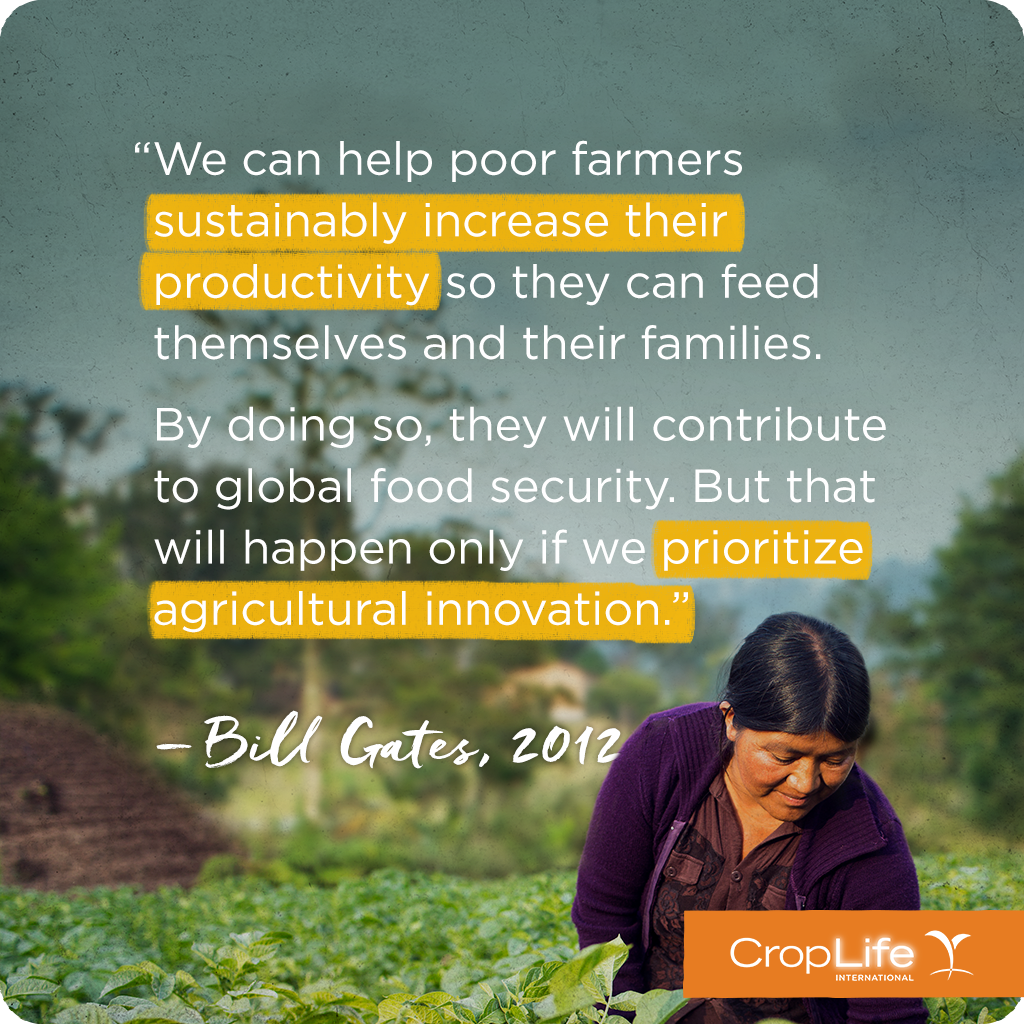By: CropLife International
We asked plant scientists from around the world what inspires them about their job. Here’s what a few of them had to say:
By: CropLife International
We asked plant scientists from around the world what inspires them about their job. Here’s what a few of them had to say:
Article by: CropLife International
Food and nutrition security, climate change and biodiversity loss are just a few of the major challenges facing the world today. And while farmers are on the front line to meet those challenges, plant scientists are working behind the scenes, in field trials and laboratories, to develop new tools that growers need to produce nutritious and plentiful crops under difficult conditions.
Source: CropLife International Plant Science Post – October 2016
Although the majority of today’s commercialized biotech crops are developed by large private companies, there is an enormous amount of plant biotech research being done by public sector institutions worldwide. Much of this research is focused on local crops in Asia and Africa, which could have a significant impact on food and nutrition security, as well as improve community health and farmer livelihoods. We talked with CropLife International’s John McMurdy, Director of Emerging Markets & Development Partnerships to learn more about public sector research of biotech crops. Continue reading..
Source: CropLife International Plant Science Post – October 2016
 For those interested in the role of plant science in international development, here are six Twitter handles you should have a grip on:
For those interested in the role of plant science in international development, here are six Twitter handles you should have a grip on:
Source: CropLife International Plant Science Post – October 2016

Source: CropLife International Plant Science Post – October 2016
For a small-scale farmer in the developing world, a healthy crop can be the difference between prosperity and poverty. Watch three farmers from India, Ghana and Honduras explain how their lives have transformed thanks to plant science knowledge and training.
Visited by more than a million tourists each year the Kew Royal Botanical Gardens are one of London’s top attractions with the world’s largest and most diverse collection of living plants. Sara Redstone, plant health and quarantine officer at Kew, discusses the importance of plant science tools, such as crop protection products and Integrated Pest Management, to keep the garden in good condition as well as safeguard rare and endangered plants.
What plant science tools does Kew use to maintain the gardens?
Source: CropLife International Plant Science Post – September 2016
Source: www.forbes.com

“The scientific consensus for the safety of GM crops is clear, yet controversy remains. To make the most informed decisions about the food we eat, it’s important to listen to the science, not the myths.” (Image Credit: GMO Answers)
Source: CropLife International Plant Science Post – August 2016
More than 600 million people could be fed each year if fungal diseases were controlled in the world’s five most important crops – rice, wheat, maize, soybeans and potatoes. Fungal infections destroy at least 125 million tons of these top crops each year, which provide the majority of calories consumed by people. Other crops like coffee and grapes can also be hugely impacted by fungi, with estimated crop losses globally of 15 and 20 percent, respectively. We need resistant varieties and crop protection products to keep our foods healthy.
